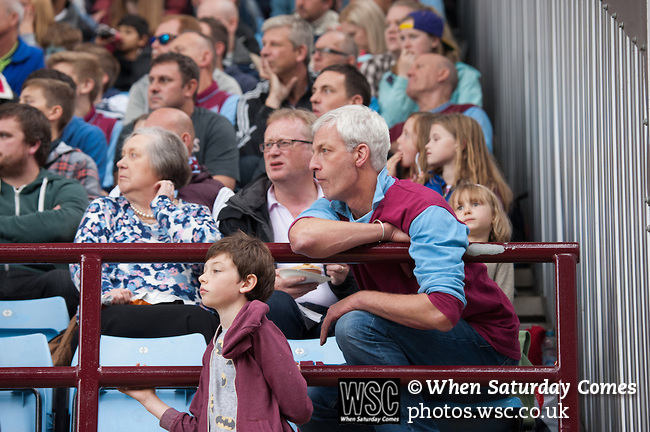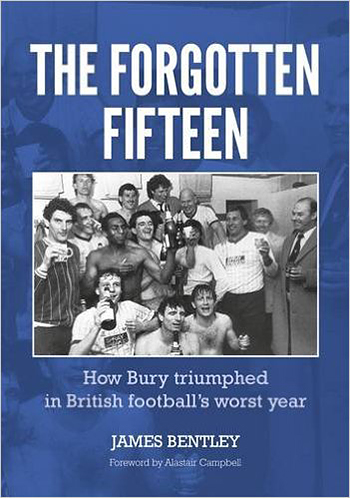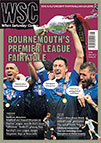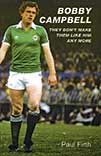Search: ' Bradford fire'
Stories

If you let your children support a different, better team you will only spoil their heritage, warned Damon Green in WSC 298, December 2011
 How Bury triumphed
in British football’s worst year
How Bury triumphed
in British football’s worst year
by James Bentley
SilverWood Books, £14.99
Reviewed by Charles Morris
From WSC 350 April 2016
The story of how a hard-up Fourth Division club succeeded against the odds and won promotion in 1984-85 using just 15 players has immediate appeal to fans of smaller clubs. The underdog theme also chimes with the present, as Leicester, Bournemouth and Burton confound expectations this season. The tale’s backdrop is compelling, too, because 1984-85 was a nadir for British football, a period besmirched by appalling hooliganism and the tragedies of the Bradford fire and the Heysel stadium.
 A verbatim play has been touring the country which tells survivors’ stories of the Valley Parade fire of 1985 in Bradford, and Tom Hocking went along
A verbatim play has been touring the country which tells survivors’ stories of the Valley Parade fire of 1985 in Bradford, and Tom Hocking went along
There is a line towards the end of The 56 when one of the characters says that the city of Bradford “wrapped its arms around itself” in the disaster’s aftermath. The line evokes the coming together of a community, but also suggests why it was regularly called football’s “forgotten” tragedy. The city’s strength to bury, mourn and remember their dead but to try to “get on” as best they could inadvertently masked its impact.
 They don’t make them like him any more
They don’t make them like him any more
by Paul Firth
Bantamspast, £12
Reviewed by Jason McKeown
From WSC 314 April 2013
It’s long been a mystery to me how people of a certain age will lament the behaviour of modern day footballers and then, within the same breath, romanticise the bad lads of decades earlier. The story of Bobby Campbell, Bradford City’s all-time leading scorer in two spells between 1979 and 1986, features tales of drinking sessions, fighting and police run-ins that would prompt moralistic howls of derision were he playing today. Yet the book’s tagline – “They don’t make them like him any more” – invites us to consider that football is worse off today for the absence of someone whose off-field antics have become as much a part of Valley Parade folklore as his 131 Bantams goals.
Still there is an almost apologetic tone to some of the stories of punch-ups with bouncers and drinking in the dressing room before matches, with biographer Paul Firth focusing more on Campbell’s many admirable qualities. Any footballer who recovers from a broken leg at 19, plays for nine different clubs across three continents and makes the Northern Ireland 1982 World Cup squad after a season in Division Four has quite a story to tell.
The book is a combination of Firth’s narration and the views of Campbell himself, which are interwoven throughout. At times the switching back and forth into the subject’s direct quotes feels awkward but the striker’s blunt statements add a valuable layer of understanding into how his career unfolded. Campbell is brutally honest about the sectarian troubles he experienced growing up in Belfast (“I had a few friends who were assassinated, one just for courting a Catholic girl”) and why his career, which started promisingly at Aston Villa, at one stage drifted into the relative obscurity of playing part-time in Australia.
Campbell’s two spells at Bradford City, his heyday, take in two promotions, the club almost going bankrupt (he had to be sold to Derby to raise money) and the tragic Valley Parade fire of 1985. You get a sense that, although Campbell had something of a hardman reputation, he deeply cared about team-mates, supporters and the club. The book’s most memorable moments are provided by interviewees who played alongside Campbell. They praise both his playing ability and caring nature, such as when he raced off a team bus that had crashed into a car to try to save the lives of two children: “It’s typical of the person, going in and not being afraid of anything,” former team-mate Stuart McCall says.
Following the Bradford fire, a City supporter tells of Campbell’s regular hospital visits to various supporters’ bedsides, as he and many others recovered. Despite a decent final spell at Wigan, Campbell was apparently fed up with football when he retired at the age of 32. Nonetheless, his biographer does an excellent job conveying the lasting legacy of this unlikely hero.